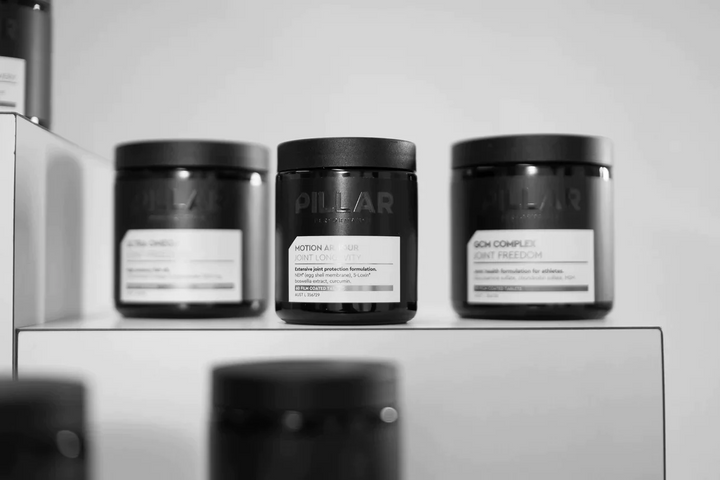So you’ve done it. You’ve taken steps to start prioritising your micros; improving your recovery, elevating your performance and strengthening your immunity. Now you’ve decided on the what, the next key consideration involves when – i.e. how to optimise the performance of these micronutrients for absorption and maximum effect.
In the case of supplementation, the goal is to roughly mirror how you would normally consume the natural derivative of each micronutrient. For example, most supplements are recommended to be taken with food (as food is often where the bulk of our micronutrients are sourced from) to reduce the likelihood of an upset stomach and to stimulate digestion, which in turn, improves absorption.
Fat-soluble vitamins, such as A, D, E and K are better absorbed in the presence of, you guessed it, fats. This can include a whole meal, such as a healthy chicken salad with lemon and olive oil drizzle, or a snack, such as some almond butter toast. Either way, the overall aim is to get in at least 5g of fat to enhance the absorption of fat soluble vitamins.
In regards to the majority of water soluble vitamins, evidence suggests that their efficacy will not be diminished if consumed in the presence of food. As the name suggests, fluid intake is especially important for the absorption of these supplements, so be sure to chase all supplements down with plenty of fluid. While being a water soluble supplement, vitamin C can be taken at any time of day, with or without food, however taking it alongside food can help decrease the potential of gastrointestinal side effects caused by its high acidity.
If you would like to simplify your routine, or are feeling simply overwhelmed, then taking the majority of your supplements around a meal is a great place to start. However, if you are interested in moving beyond the fundamentals and towards further optimisation, there are some interesting things to take note of within your supplement routine.
Some micronutrients have been identified as mutually beneficial co-factors, some examples include vitamin D, which helps boost calcium absorption, and vitamin C which supports iron absorption.
Optimising these nutrients can include both supplementing simultaneously, or boosting with food sources, such as having a glass of orange juice alongside your iron supplement. It is important to note that iron supplements are a common culprit for digestive upset when taken on an empty stomach, so take extra care to pair it with a meal that will both help mitigate any discomfort, as well as boost absorption where possible.
While the majority of supplements play nicely with each other, calcium is one micronutrient where, if possible, it’s advised to keep separate within your routine if you’re trying to completely optimise your supplement use.
Calcium can affect your body’s absorption of both iron and magnesium, and hence, it is recommended to take calcium supplements at a different meal than your iron supplements and/or your general multivitamin. The exception of course being Vitamin C, which can work synergistically with Iron.
Lastly, if you’re thinking ‘which supplements can I take on the go when I haven’t had the chance to eat?’. Certain minerals can be taken without food, called chelated mineral supplements. Chelation refers to when a mineral is already bound to an acid and does not need to rely on your stomach acid to break it down for optimal absorption. This includes calcium citrate or magnesium glycinate, which, providing your stomach can handle it, are generally fine to take without food. On a similar note, preliminary research surrounding probiotics also suggests potential advantages in taking them half an hour before a meal. Stomach acids are often at their lowest in the morning before breakfast, so if possible, try to consume your probiotics in the morning, fasted, for optimal support of your gut health.
Now that we’ve discussed which supplements play well together, and with what food, we can shift our attention to the next most common question, i.e., what time of the day should I take my supplements?
Overall, consensus remains that using our natural feeding cycle (as a general guide) is often a good place to start. One finding that tends to remain consistent is that taking your dietary supplements at night is not advisable. Digestion slows down significantly during sleep and thus, supplementing late at night is not highly conducive to efficient absorption. Clinical nutritionist Neil Levin suggests that the morning/early afternoon is best for a range of supplements, and in particularly B vitamins, which are known to support neurological functions such as metabolism and clarity. According to Levin, supplements ‘tend to do best when taken earlier in the day… B vitamins might stimulate metabolism and brain function too much for a relaxing evening or before bed’.
Overall, if this level of detail causes you to be overwhelmed, or heavily disrupts your natural routine, keep it simple—have your supplements during breakfast or lunch, ideally alongside a meal containing some healthy fats. Try to keep your Calcium and Iron separate, keep yourself hydrated, and you should be fine. As always, the best guide about what works best for you, is YOU. Give yourself permission to experiment with your routine and use your intuition as your compass for what’s working, and what isn’t. If you’ve picked a few key supplements, you’ve already started your journey towards prioritising your health which is an amazing feat on its own!
Sample supplement schedule
For optimal absorption of key supplements:
Fasted before breakfast OR with breakfast: Probiotics, B vitamins
With breakfast: Multivitamin, omega-3s
With lunch: Calcium, vitamin D
With dinner: Iron, vitamin C, magnesium


0 comments